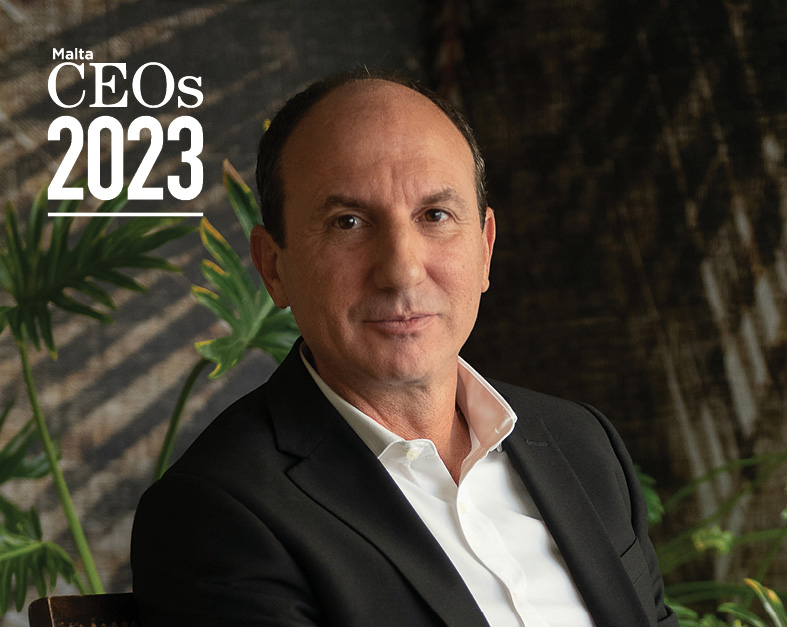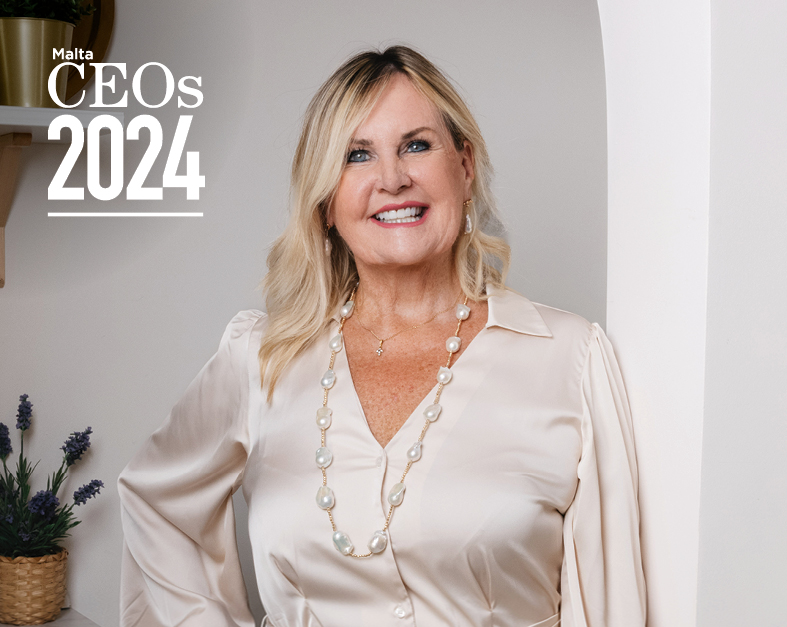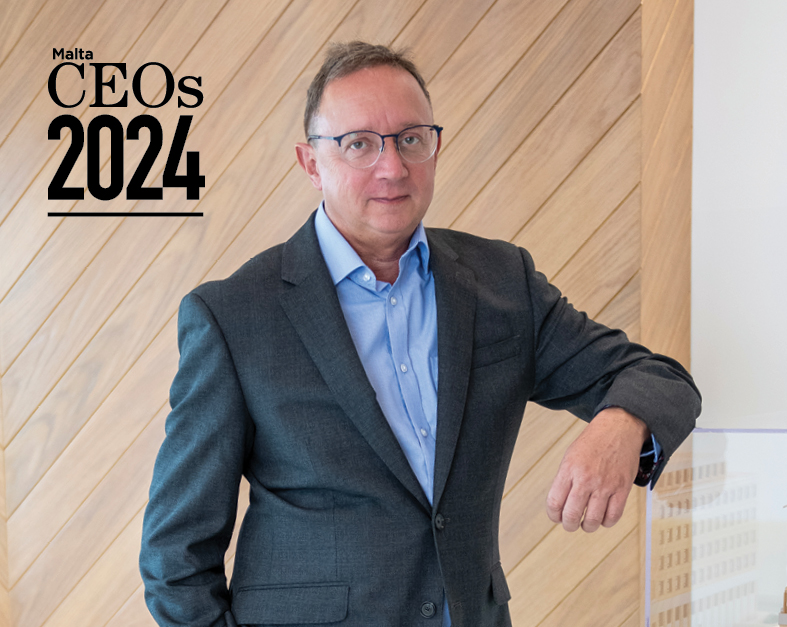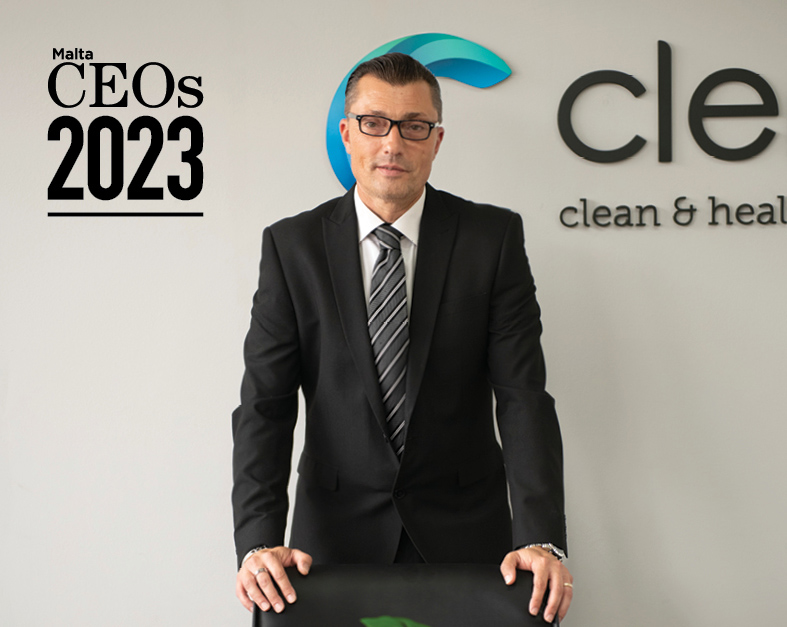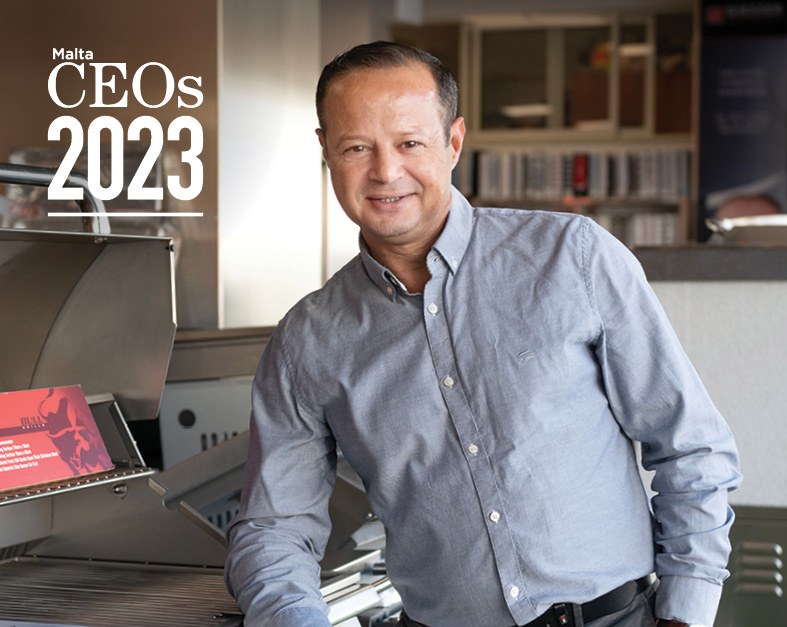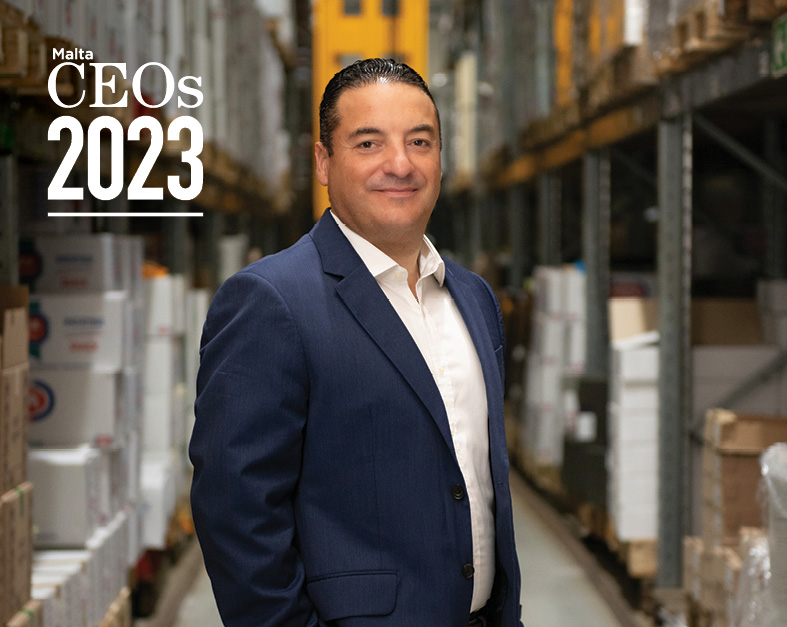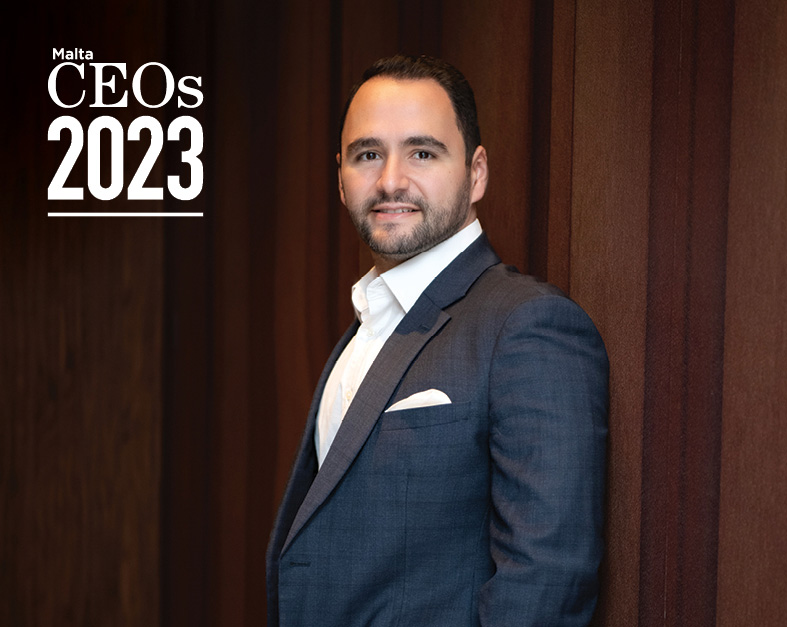Since becoming CEO of Sparkasse Bank in 2006, Paul Mifsud has invested his energies in cementing and bolstering the capabilities of his specialist team, empowering his staff to excel. And he is determined to keep placing this dialogue between all stakeholders at the heart of the Bank’s operations.
“I see myself as the glue that tries to bind our competent people together,” Paul Mifsud, CEO of Sparkasse Bank, says, with a warm smile that seems to affirm his collaborative approach. “I liaise between the team, determining what makes the staff within the bank tick, and empowering those around me. That’s my job, as CEO – and, if it is done well enough, eventually, I can make myself redundant,” he explains, with modesty.
Paul’s desire to be this uniting force comes from years of experience in various business roles as Managing Director for other firms he ran, in particular Quest Investment Services which he founded in 2000 with the goal of providing investment advisory services. That firm grew in a few short years and came to the attention of Sparkasse Bank, which had been established in 2002. Indeed, in 2006, the bank acquired a majority stake in Quest’s investment services firm, offering the enterprising leader a role as CEO.
“It was a business opportunity that allowed for the bank to grow its investment services arm and to branch out into new areas of banking that were rather dormant locally at the time. Jointly with the then-Chairman I had worked on a business plan for which I was given the mandate to implement,” he says, underscoring, however, the importance of the work done by the staff at the bank.
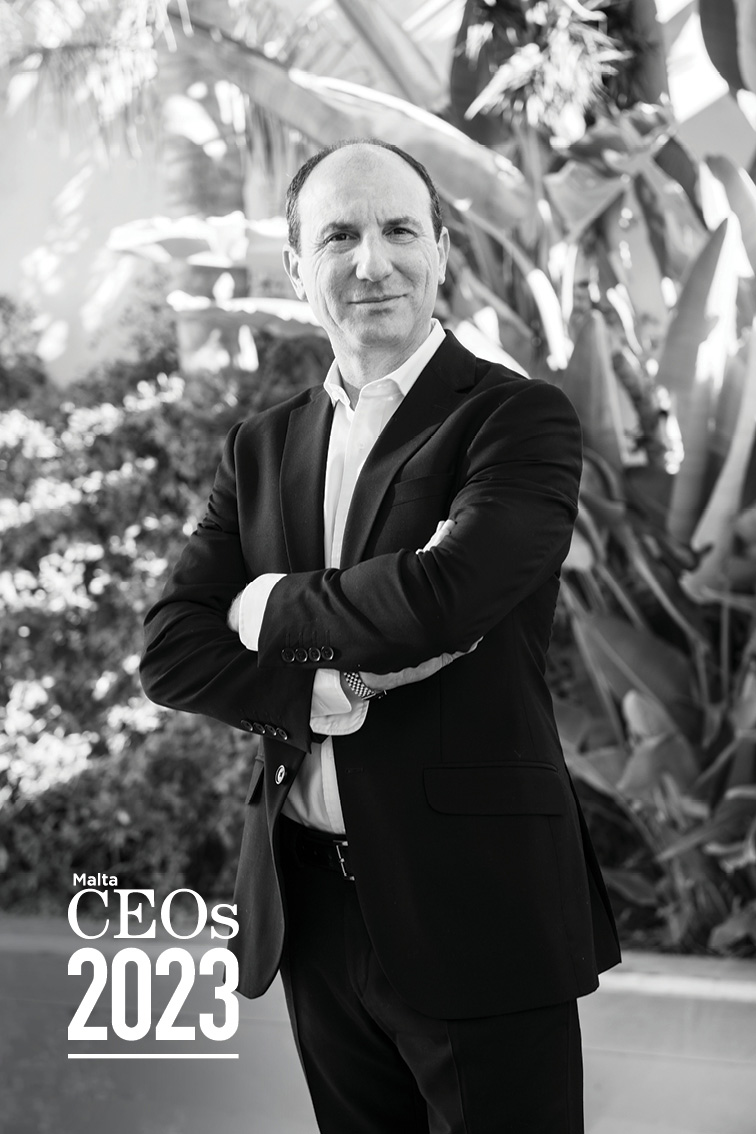
“What always keeps me going are our people at Sparkasse – those who make the day-to-day happen. However, you have to ensure you can provide sufficient challenges to keep people motivated, and to retain that talent within the firm,” he explains. Humility, he continues, is at the heart of creating the right working environment for the right people to thrive.
“Always be modest, and always be willing to listen,” he says, when stating the advice he would give to younger leaders starting out. “Don’t assume you know it all; you’re there to listen to the experts and form judgment. The role of a CEO is to listen to good advice and use it for the best of the firm. Any aspiring business leader needs to learn to yield power in a humble manner while giving the team the opportunity and platform to showcase their talent and be accountable for it. My work is all about the collective; you need to give your staff the opportunity to contribute.”
This attitude is the cornerstone of success, Paul believes, particularly in the dynamic sector he operates within. “There are always new regulations, opportunities and threats. This keeps stress levels high but that can be healthy too, at times, as it keeps us on our toes. Of course, it sometimes poses a challenge in terms of human resources,” he asserts, reiterating the importance of keeping his staff at the heart of the bank’s processes.
“Human resources in Malta are rather thin on the ground. While capital is not in short supply, human resources and the supply of specialists surely is. Unfortunately, we don’t have a deep enough pool of professionals or experts locally from which we can source talent. Luckily, Malta attracts other EU nationals seeking work here; in fact, approximately 40 per cent of our workforce is foreign – 80 per cent from the EU and 20 per cent are third-country nationals,” he explains, adding that, in the past few years and as a result of the pandemic, there has been more employee movement than usual. “Staff didn’t move over the two years of lockdown, so when restrictions were lifted and life went back to normal, younger people looked for greener pastures.”
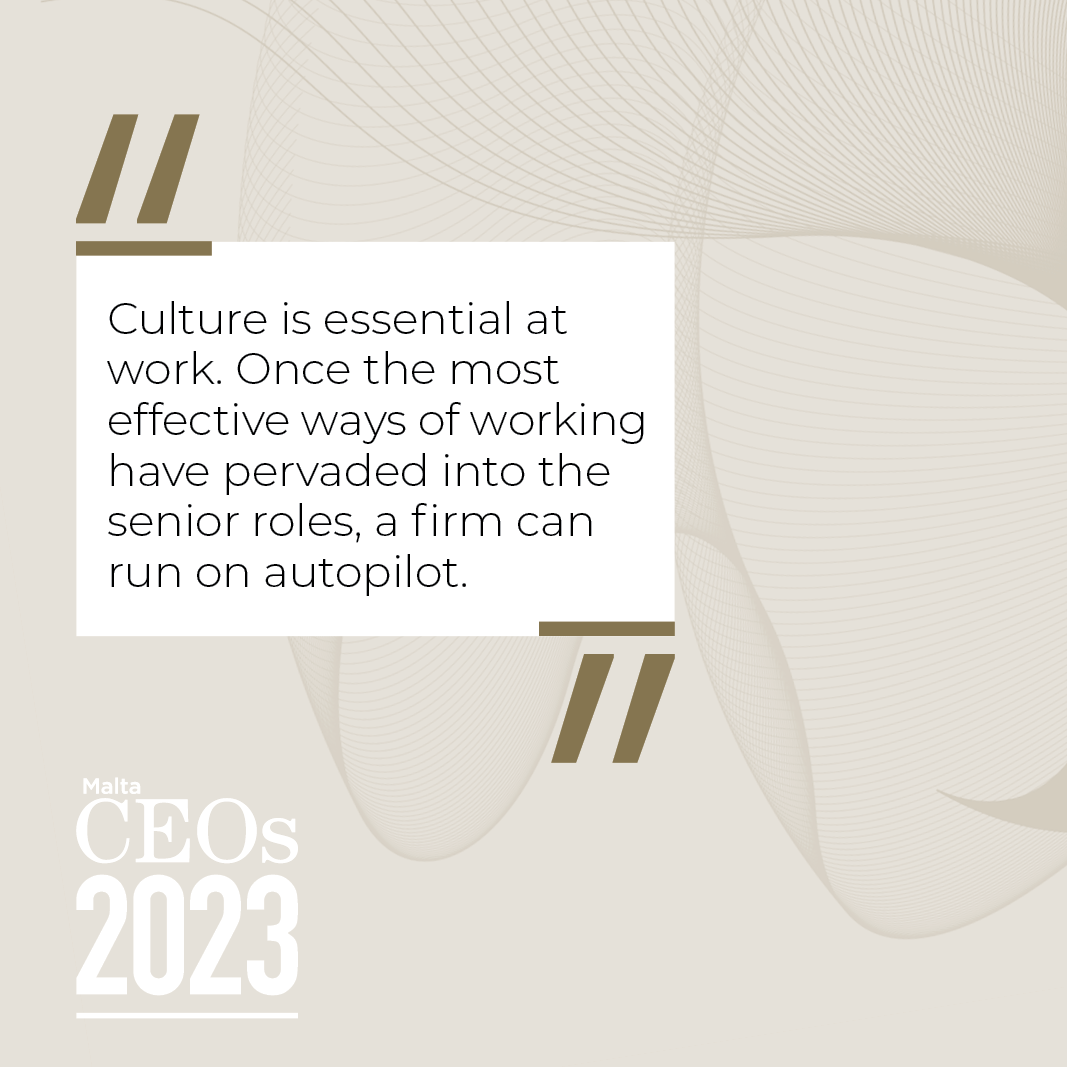
Another challenge has been the necessity for robust digital infrastructure. “IT sustainability is a central preoccupation. Everything today has an IT element to it – all our processes, procedures and risk management operations; if you cannot automate the task, then you cannot affect it. That’s the reality today. Within a bank, you want to mitigate risk as much as possible, particularly since the risks for error are high and laws around information security are very prescriptive. So, with regards to a bank like Sparkasse – which is a business-to-business enterprise, and not a retail operation – we are not only running a firm, with its own balance sheet, but also ensuring 100 per cent digital capabilities. Here, the expertise is not easy to come by,” he affirms.
Due to the general development and adoption of IT processes, COVID-19 did not generally disrupt banking in so far as the bank’s capabilities to transact for customers. It was more the repercussions of the pandemic that were insidious and unexpected. In fact, the aftermath of the crisis impacted several economies last year, due to supply shortages. These were then compounded by the war in Ukraine, prompting a fight against inflation. In reaction, central banks moved to increase interest rates, and there’s talk that these will increase even further this year due to the energy crisis. That was the biggest surprise last year, the CEO insists, calling the European Central Bank’s aggressive move to increase interest rates – to 1.5 per cent at the time of writing – as “cardinal” in its impact.
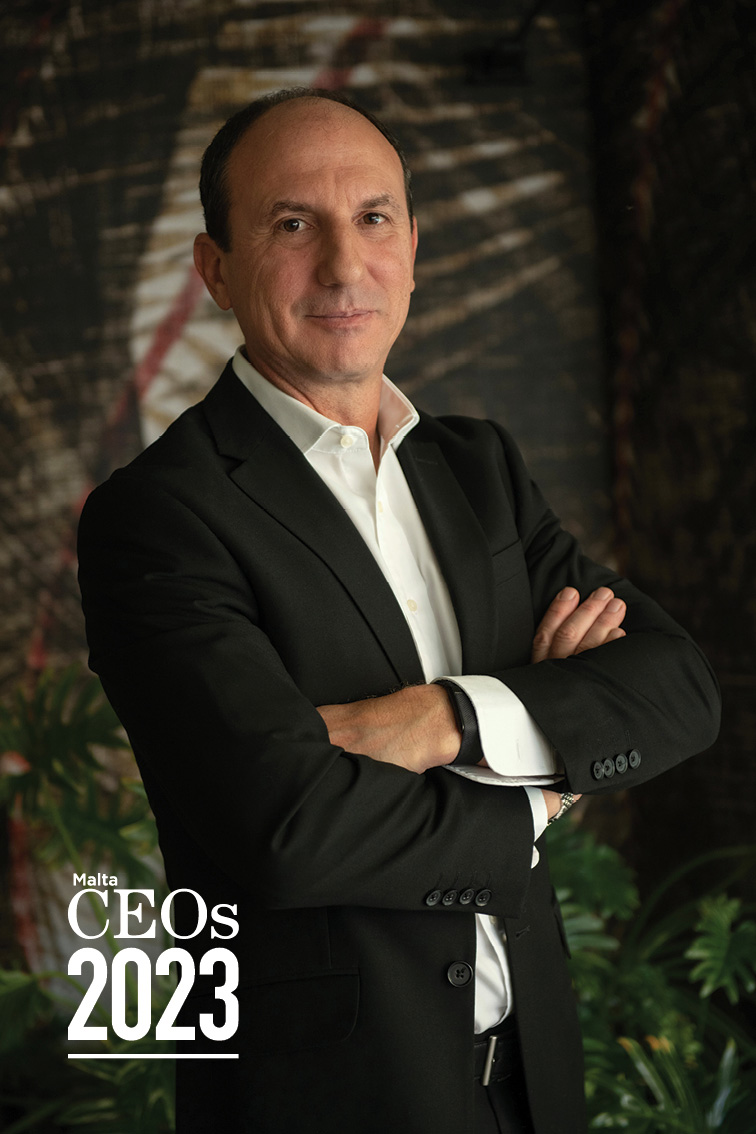
Despite these hurdles, however, Paul has kept the ship on course. “I didn’t have to change what we were doing; I have a good rapport with our staff and we continued with our meetings. I also retained intense dialogue with management. Culture is essential and, once the most effective ways of working have pervaded into the senior roles, a firm can run on autopilot. It’s important to choose the right procedures and, if something isn’t working, it must be tackled immediately. So, despite these shifts, we continued to do what we normally do, calmly,” the CEO says.
Ultimately, “the bank is trained to be nimble, so when we see a shift, whether it’s a challenge or opportunity, we have sufficient agility to be able to react and to counterbalance any threat, or to be able to capitalise on any opportunity. In this way, we have continued to develop and grow Sparkasse’s opportunities in Ireland, for instance, with more changes up ahead,” he explains.
Indeed, Paul and his team will, this year, affect a merger between Sparkasse and another bank, the groundwork for which started in 2022. “Our main task in 2023 is to transition our financial institution and merge it with another entity, so our share capital, head count and business will increase significantly. As a result, additional services will be added to our portfolio. This is our number one priority for the next few months – that is, to affect a seamless integration, all the while ensuring our existing business model and customer relationships are kept on track,” he insists.
And, while all hands will be on deck for what is expected to be a big year at Sparkasse, Paul is determined to ensure his staff’s well-being continues to be prioritised, in line with his personal philosophy. “Time is one of our most precious resources. It is finite, and it’s important to make the most of opportunities to be with loved ones. This, in turn, allows us to dedicate focus to our work, without seeing it as a burden,” he says.
This article is part of the serialisation of 50 interviews featured in MaltaCEOs 2023 – the sister brand to MaltaCEOs.mt and an annual high-end publication bringing together some of the country’s most influential business leaders
‘You start from nothing, and then you grow’ – Clentec Ltd Founder and CEO
MaltaCEOs 2023 serialisation: Simon Jesmond Turner shares that some have been with the firm from the start, with children now ...
‘Whatever you’re doing, you always need to be forming relationships’ – Zamco Group CEO
MaltaCEOs 2023 serialisation: Sandro Zammit shares that the company almost never says no to anything, and, while that can be ...
‘Some of the greatest opportunities emerge from crises’ – Nectar Ltd CEO Roderick Abela
MaltaCEOs 2023 serialisation: Roderick has come a long way since his first days at the company nearly three decades ago.
‘I love inspiring others to work towards a goal’ – Bluefort CEO Edward Borg Grech
MaltaCEOs 2023 serialisation: Edward sees a very bright future for the company, particularly since the subscription economy is growing.


